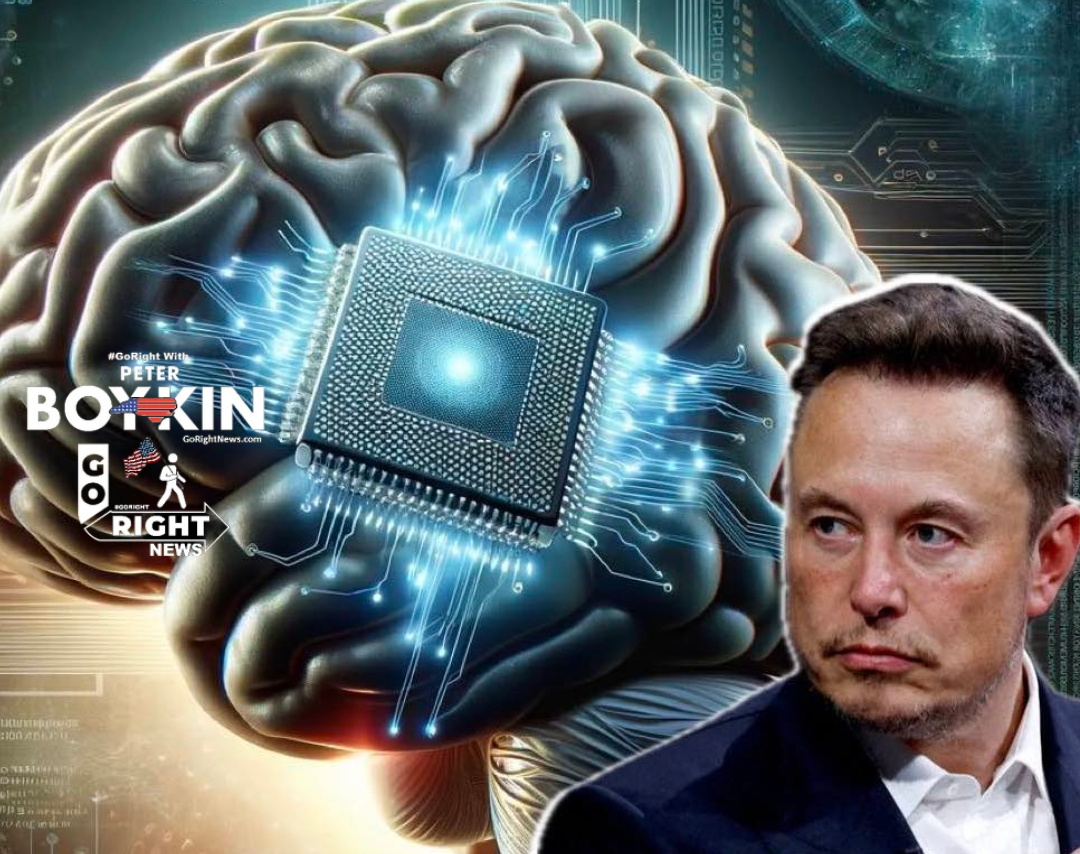Elon Musk’s Neuralink Achieves Milestone: First Human Implant Sparks Controversy
Shared By Peter Boykin – American Political Commentator / Citizen Journalist / Political Candidate

Elon Musk puts first chip in human brain
Elon Musk’s Neuralink Achieves Milestone: First Human Implant Sparks Controversy
In a groundbreaking announcement on X (formerly Twitter), entrepreneur Elon Musk revealed that Neuralink, his brain-chip startup, has successfully implanted its inaugural device into a living human subject. Musk shared the news, stating that the recipient is recovering well and the initial results indicate promising neuron spike detection.
Neuralink’s primary objective is to develop brain-connected devices with multifaceted goals:
🧠 Short-term: Aiding individuals with neurological conditions.
🦾 Mid-term: Aspiring to restore full body function for paralyzed individuals.
🤨 Long-term: Enhancing human cognitive capabilities.
The intricacies of Neuralink’s functioning involve placing a chip in the brain’s movement-controlling region, enabling the interpretation of brain signals to control external devices such as smartphones or computers.
Musk elaborated on X, emphasizing the potential applications of the technology: “Enables control of your phone or computer, and through them almost any device, just by thinking. Initial users will be those who have lost the use of their limbs. Imagine if Stephen Hawking could communicate faster than a speed typist or auctioneer. That is the goal.”
While Neuralink strides ahead, competitors are emerging in the race for brain-chip technology. Jeff Bezos and Bill Gates are investing in rivals like Synchron, and Peter Thiel is backing Neurotech, another brain-chip maker championed by Blackrock.
However, skepticism surrounds the long-term implications of such advancements. Journalist Joe Allen, specializing in the intersection of technology and religion, cautioned about the potential risks associated with human-computer interfaces, stating, “In this mad era of blurred lines and mass invasions, you could easily find yourself colonized before you even know the borders have crumbled.”
As Neuralink marks this significant milestone, the debate over the ethical, social, and religious ramifications of brain-chip technology intensifies. The intersection of human consciousness and artificial augmentation remains a hotbed of controversy, with divergent perspectives shaping the narrative.
[Source: Washington Post, Reuters, Business Insider]
This Article is Brought to you by Go Right News and Edited by Peter Boykin
Visit GoRightNews.com for More Articles and Visit PeterBoykin.com to Learn more about Peter Boykin


